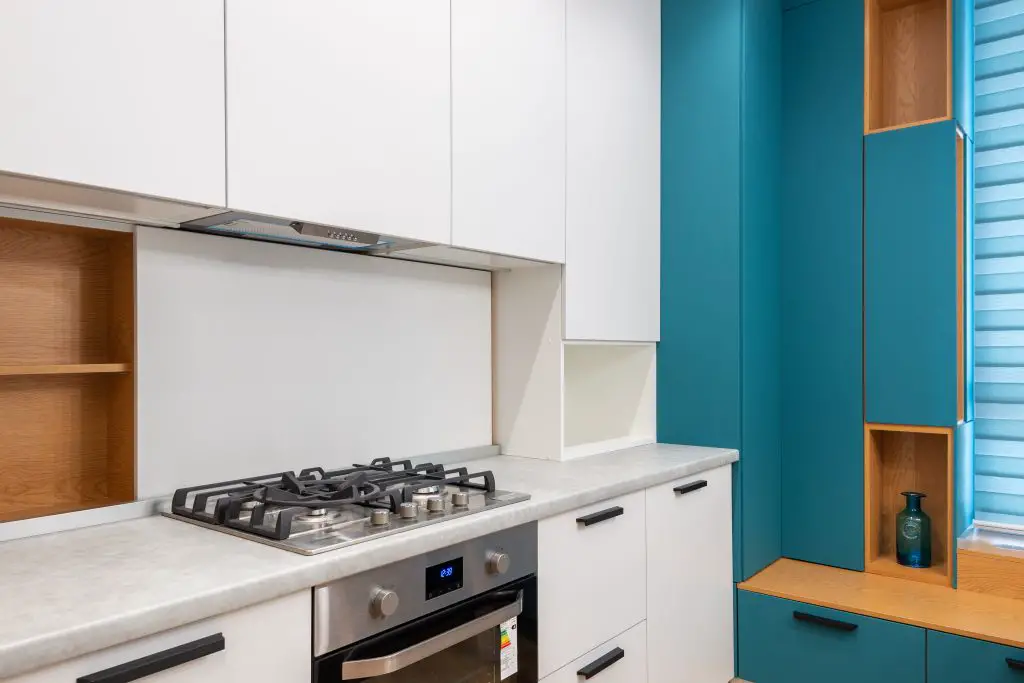If you’re weighing the pros and cons of a convection oven, you might be pondering the question, “Do convection ovens heat up the kitchen more than traditional ovens?” This guide offers a thorough, step-by-step exploration into how convection ovens work, their impact on kitchen temperature, and how to minimize heat emission.

Table of Contents
Understanding How Convection Ovens Work
Before diving into the topic at hand, it’s important to understand the fundamental working of a convection oven. Unlike its traditional counterpart, a convection oven is equipped with a fan and an exhaust system. This allows hot air to circulate around the food you’re cooking. As a result, a convection oven typically cooks food more evenly and can do it up to 25% faster than a traditional oven.
Many people assume that because a convection oven has a fan, it might generate more heat or, conversely, dissipate more heat into the kitchen environment. However, this isn’t necessarily the case, and several factors come into play.
Do Convection Ovens Heat Up the Kitchen? – Temperature Impact
The question of whether convection ovens heat up the kitchen more than traditional ovens is a common concern. However, the answer isn’t as straightforward as one might expect. Let’s dissect the factors affecting heat emission.
Heat Emission
Firstly, let’s talk about heat emission. When you turn on any oven, it’s natural for some heat to escape. But how does a convection oven compare to a traditional oven in this regard? To get a good gauge of this, you can turn on each oven separately and observe the amount of heat emitted.
It’s useful to use an indoor thermometer to track the temperature changes in your kitchen when the ovens are in operation. From numerous tests, there’s no significant evidence to suggest that a convection oven emits noticeably more heat than a traditional oven.
Read more articles on convection oven cooking here – Convection Oven: Your Ultimate Guide
Efficiency
The next point to consider is efficiency. Convection ovens are generally more efficient at cooking food, meaning they cook faster. So, they might be on for a shorter duration compared to traditional ovens.
This is an important variable when considering the total heat emission in your kitchen. The faster your food cooks, the sooner you can turn off the oven, which could result in less heat spilling into your kitchen over time.
Exhaust System
The final aspect to consider is the oven’s exhaust system. One of the primary features of a convection oven is its ability to circulate air. While one might assume this would mean more heat emission, the opposite could actually be true. The exhaust system could help disperse some of the heat, which can be particularly beneficial in preventing a buildup of hot air in your kitchen.
Practical Tips to Minimize Heat
If you’re still worried about how a convection oven could affect the temperature of your kitchen, there are several practical steps you can take to minimize heat. One effective strategy is to use your oven during off-peak hours, such as early in the morning or late in the evening when the outdoor temperature is generally cooler.
This will not only save you from extra discomfort but can also be more energy-efficient. Another important measure is to ensure your kitchen is well-ventilated. Whether you have a built-in exhaust fan or use standalone fans to circulate air, having good ventilation can go a long way in keeping your kitchen cool.
Do Convection Ovens Heat Up the Kitchen?: Conclusion
The question, “Do convection ovens heat up the kitchen?” doesn’t have a straightforward answer. However, by understanding how these ovens work and taking into account factors like heat emission, efficiency, and exhaust systems, you can get a clearer picture.
Through simple practical steps, you can also take measures to ensure your kitchen remains as cool as possible, regardless of the type of oven you use.
